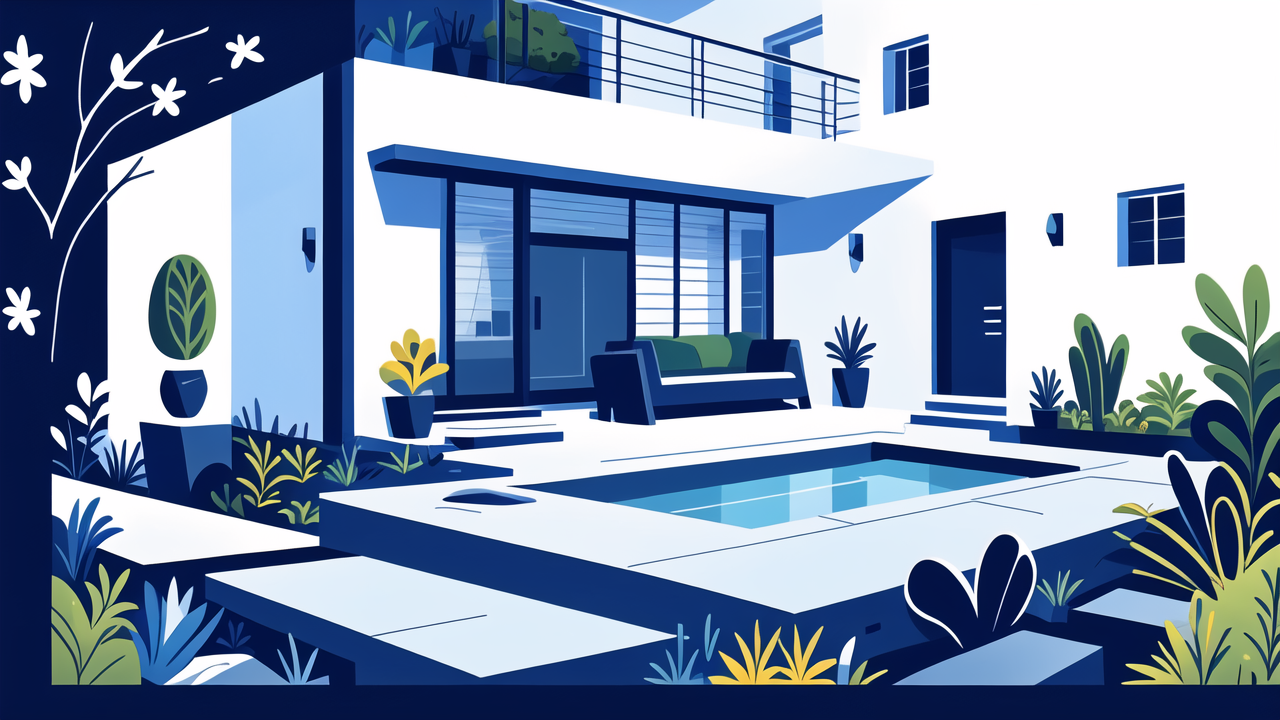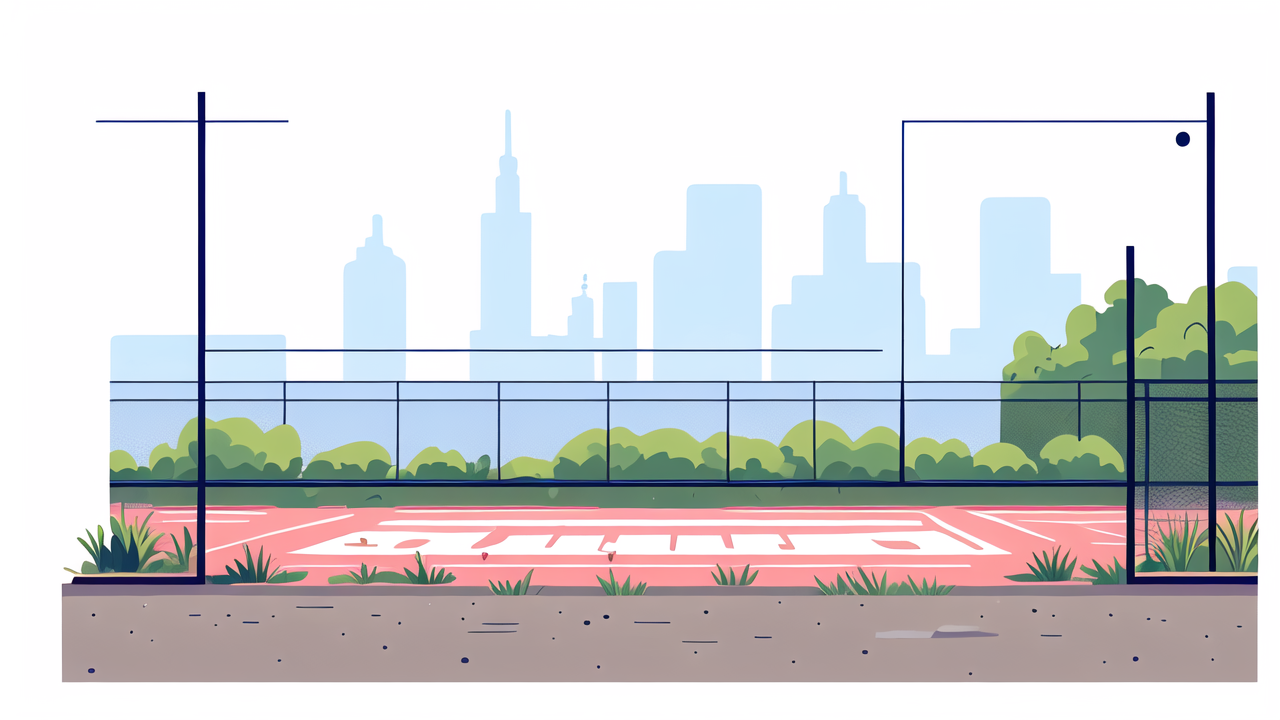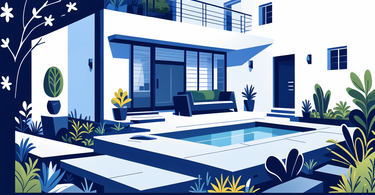The Aesthetic Appeal of Black Garden Fences in the United States
The Role of Black Fences in Modern Landscaping
Black garden fences have become a trendy choice in modern landscaping. They offer a sleek,

contemporary look that enhances any outdoor space. These fences create a striking contrast
against lush greenery and colorful flowers. They serve as a perfect backdrop, making plants
and garden features stand out. Black fences also blend well with various architectural styles.
Whether your home is modern or traditional, a black fence can complement its design. Many
homeowners use black fences to define spaces within their gardens. They can create separate
areas for dining, relaxation, or play. The versatility of black fences makes them a popular
choice for both urban and suburban landscapes.
The Color Psychology of Black in Gardening
Black is a powerful color in garden design. It evokes feelings of sophistication and elegance.
In gardening, black can create a sense of depth and mystery. It makes other colors appear more
vibrant by contrast. This effect can make your garden look more lively and dynamic. Black also
has a grounding effect, providing a solid visual anchor for your garden. It can make a space
feel more intimate and cozy. Some people worry that black might be too harsh for a garden.
However, when used thoughtfully, it can create a dramatic and stylish look. Black fences can
also help to highlight the natural beauty of your plants and flowers. They provide a neutral
backdrop that allows other elements to shine.
Black Garden Fences: A Versatile Choice for Homeowners
Black garden fences offer great versatility for homeowners. They can suit various garden
styles and themes. For a modern look, pair a black fence with geometric planters and sleek
furniture. In a cottage garden, black fences can add a touch of elegance to wild, romantic
plantings. They also work well in minimalist gardens, providing structure and definition.
Black fences can make small gardens appear larger by creating the illusion of receding space.
In larger gardens, they can help divide areas without feeling heavy or imposing. Many
homeowners appreciate how black fences can hide dirt and wear better than lighter colors. This
makes them a practical choice for busy families or those who prefer low-maintenance options.
Practical Benefits of Black Garden Fences
Durability and Maintenance: Why Black Fences Last
Black garden fences are known for their durability and low maintenance needs. The dark color

helps to hide dirt, stains, and minor damage. This means your fence can look good for longer
with less effort. Many black fences are made from materials that resist fading and weathering.
This includes treated wood, powder-coated metal, and certain types of vinyl. These materials
can withstand harsh sun, rain, and temperature changes. Regular cleaning is usually simple,
often requiring just a hose down or gentle wash. Some black fences may need occasional
touch-ups to maintain their color. However, this is typically less frequent than with lighter
colored fences. The longevity of black fences makes them a cost-effective choice for many
homeowners.
Maximizing Space with Black Garden Fences
Black garden fences can help maximize space in clever ways. Their dark color can create the
illusion of depth, making a small garden seem larger. This effect is especially useful in
urban gardens or tight spaces. Black fences can also serve as a backdrop for vertical
gardening. Hanging planters or climbing plants stand out beautifully against a black fence.
This allows you to grow more in limited ground space. In larger gardens, black fences can
define separate areas without feeling bulky. They can create cozy nooks or divide functional
spaces subtly. Some homeowners use black fences to hide less attractive areas of their yard.
The dark color can help camouflage storage areas or utilities. By thoughtfully placing black
fences, you can guide the eye to your garden's best features.
Customization Options for Black Garden Fences
Black garden fences offer many customization options. You can choose from various materials,
each with its own look and feel. Wood fences can be painted or stained black for a classic
look. Metal fences offer sleek, modern options in wrought iron or aluminum. Vinyl fences
provide a low-maintenance choice that comes in different black shades. The style of your fence
can also be customized. Options include picket fences, privacy fences, or decorative panels.
You can add details like post caps, lattice tops, or built-in planters. Some homeowners mix
black fencing with other colors or materials for a unique look. For example, you might combine
black metal with wood accents. Lighting can also enhance your black fence, creating dramatic
effects at night. With so many options, you can create a black fence that perfectly suits your
style and needs.
Installing a Black Garden Fence: Expert Insights
The Step-by-Step Installation Process
Installing a black garden fence requires careful planning and execution. Here's a basic

step-by-step guide:
- Plan your fence layout and get necessary permits.
- Mark the fence line and post locations.
- Dig post holes to the proper depth.
- Set posts in concrete and ensure they're level.
- Install the fence panels or boards between posts.
- Add any finishing touches like post caps or gates.
- Apply paint or sealant if needed.
Always check local regulations before starting. Some areas have specific rules about fence
height or placement. If you're not confident in your DIY skills, consider hiring a
professional. They can ensure your fence is installed correctly and safely.
Best Practices for Black Garden Fence Installation
When installing a black garden fence, follow these best practices:
- Choose high-quality materials suited to your climate.
- Ensure proper drainage around fence posts to prevent rot.
- Use appropriate hardware that won't rust or stain the fence.
- Allow for expansion and contraction in wooden fences.
- Consider the sun's path to avoid creating unwanted shadows.
- Plan for gates and access points in convenient locations.
- Use a level frequently to ensure your fence is straight.
- If painting, use a primer designed for outdoor use.
Taking time to do the job right will result in a fence that looks great and lasts longer.
Don't rush the process, especially when setting posts or applying finishes.
Maintaining Your Black Garden Fence: Expert Advice
Proper maintenance will keep your black garden fence looking its best. Here are some expert
tips:
- Clean your fence regularly with mild soap and water.
- Inspect for damage or loose parts at least twice a year.
- Touch up paint or stain as needed to maintain color.
- Trim plants away from the fence to prevent moisture damage.
- Apply a protective sealant every few years if recommended.
- Tighten any loose screws or brackets promptly.
- Address any signs of rust or rot immediately.
- Consider pressure washing wood fences annually.
For metal fences, watch for signs of rust and treat them quickly. Wooden fences may need more
frequent care to prevent weathering. Vinyl fences are low-maintenance but may need occasional
cleaning to prevent algae growth. By following these tips, you can ensure your black garden
fence remains an attractive feature of your outdoor space for years to come.
